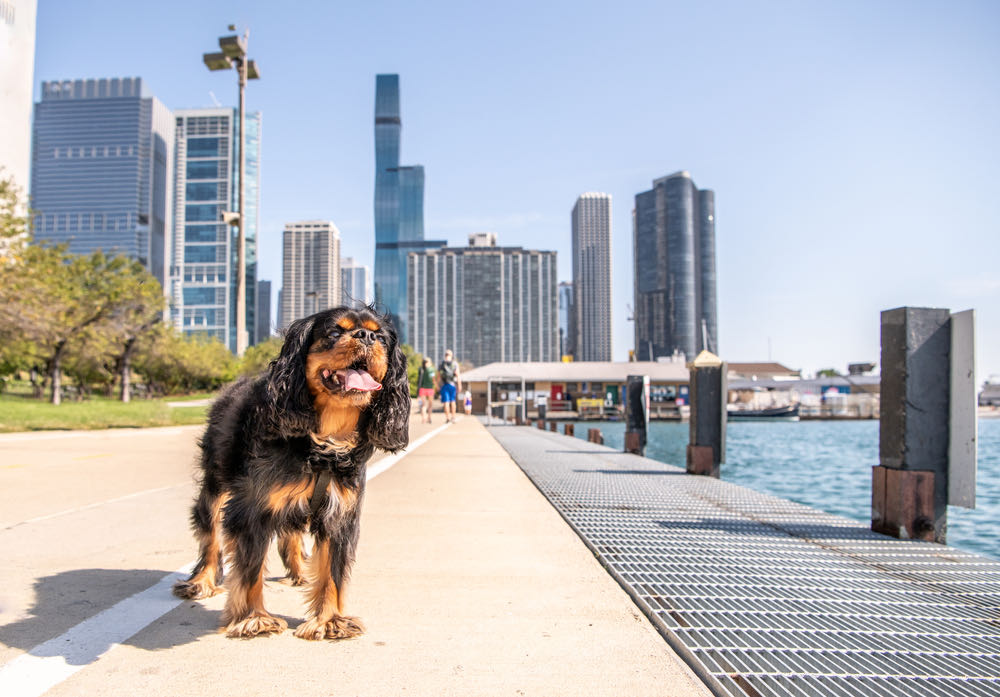
Owning a dog comes with responsibility, and understanding local laws is an important part of being a responsible pet owner. Pet owners must follow local and state regulations to ensure their dogs remain safe and well cared for. This includes providing them with enough space. If any legal disputes or uncertainty arise, an experienced attorney can provide guidance on navigating the issue.
Illinois Pet Laws: What You Need to Know
Illinois does not have a statewide rule that limits how many pets or dogs a person can own, but different cities and counties could have restrictions. Some areas allow only a few dogs per household, while others have more relaxed rules. However, if an individual operates a business that involves boarding, breeding, training, or providing daycare for domestic animals, they are required to obtain an Animal Care License.
Illinois has other laws that dog owners must follow. All dogs over four months old must be licensed and vaccinated against rabies. Owners must also keep their dogs under control at all times, whether by using a leash or keeping them inside a fenced yard. Breaking these rules can result in legal consequences. The severity of the violation depends on the specific violation. example, leash law violations can lead to fines starting at $300.
As some cities enforce a pet limit, it is best to check with your local municipal or local attorney specializing in dog laws. The ownership requirements would take into consideration various factors like the dog’s breed and space requirements. Companion animals, including service dogs, are subject to leash laws, and owners must clean up their dogs’ waste to maintain hygiene. Popular breeds like Labrador Retrievers, Yorkshire Terriers, German Shepherds, Border Collies, and Golden Retrievers require extra space to ensure responsible ownership.
Why Some Areas Limit The Number Of Dogs Allowed In Illinois
Cities and counties often set limits on how many dogs a person can own for important reasons. One major concern is public health. When too many dogs live in one home, proper care can become difficult. A lack of attention and hygiene can lead to unsanitary conditions, and diseases can spread more easily among animals and people.
Noise and living space are also factors. A home filled with barking dogs can become a serious nuisance for neighbors. Large numbers of pets in a small space can cause overcrowding, making it harder to provide proper exercise and socialization. Setting dog ownership limits in Illinois ensures that dogs have enough room to live comfortably and that the community remains peaceful.
Animal shelters are another concern. Some people take in more dogs than they can handle, which leads to abandonment or surrendering them to shelters. Cities try to prevent this by putting reasonable restrictions in place. The goal is to make sure that dogs receive good care and do not end up without a home because their owners were overwhelmed.
What Happens If You Violate Dog Laws?
In Chicago, while there is no specific limit on the number of dogs a resident can own, pet owners must adhere to various regulations to ensure proper dog ownership is essential. This includes leash laws and pet waste removal.
Caring for multiple pets requires significant time and money, including feeding, training, and medical care. Setting reasonable ownership limits can help ensure pets receive the attention they need and prevent challenges for their owners. Animal control officers sometimes step in if conditions are poor. If a home becomes unsafe for dogs, they may be taken away. This means that owners who violate local laws and fail to provide proper care risk losing their pets.
Illinois also has strict rules about how dogs must be handled in public. Owners who fail to leash their pets or allow aggressive behavior can face serious consequences. If a dog bites someone, the owner may be responsible for medical expenses and legal costs. In extreme cases, authorities may decide that a dog should be removed from a home for safety reasons.

How Pet Liability Insurance Can Protect Dog Owners
Pet liability insurance helps protect dog owners if their pet bites someone or damages property. Without coverage, an owner may have to pay medical bills or repair costs personally.
Some homeowners’ insurance policies include pet liability coverage, but not all do. Owners should check their policy details to know what is included. If coverage is lacking, purchasing a separate policy can provide financial security. Insurance is particularly important for those with multiple dogs or breeds considered high-risk.
Pet liability insurance helps reduce financial stress. If an accident happens, insurance can cover costs, allowing owners to focus on caring for their pets instead of worrying about unexpected expenses. You can contact us to learn more about how pet liability insurance policies could impact your dog ownership.
Legal Help for Illinois Residents in Dog Bite Cases
Dog bite cases can lead to complex legal disputes. Illinois holds dog owners responsible for injuries caused by their pets, even if the dog has never bitten before. Victims of dog bites often seek compensation for medical treatment and emotional distress. Legal assistance is important in these cases, whether for the injured person or the dog’s owner. A lawyer can help gather evidence, negotiate settlements, and defend against unfair claims.
Victims of dog bites can seek compensation. In some cases, dog owners may need legal help if they believe their pet was wrongly accused. Sometimes bites occur due to provocation or because the victim ignored warnings. In such situations, an Illinois dog bite lawyer can present the facts to ensure a fair outcome.


